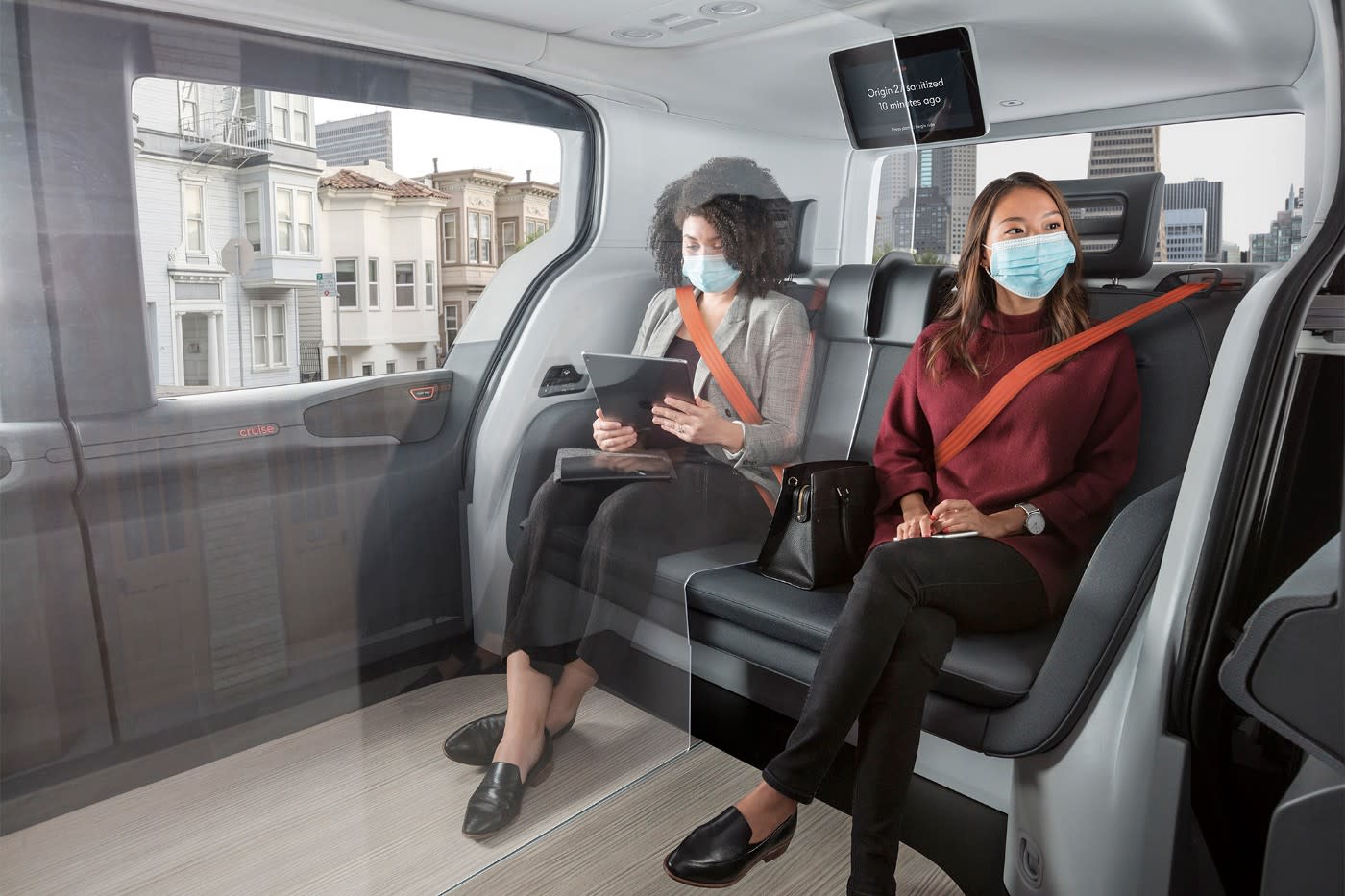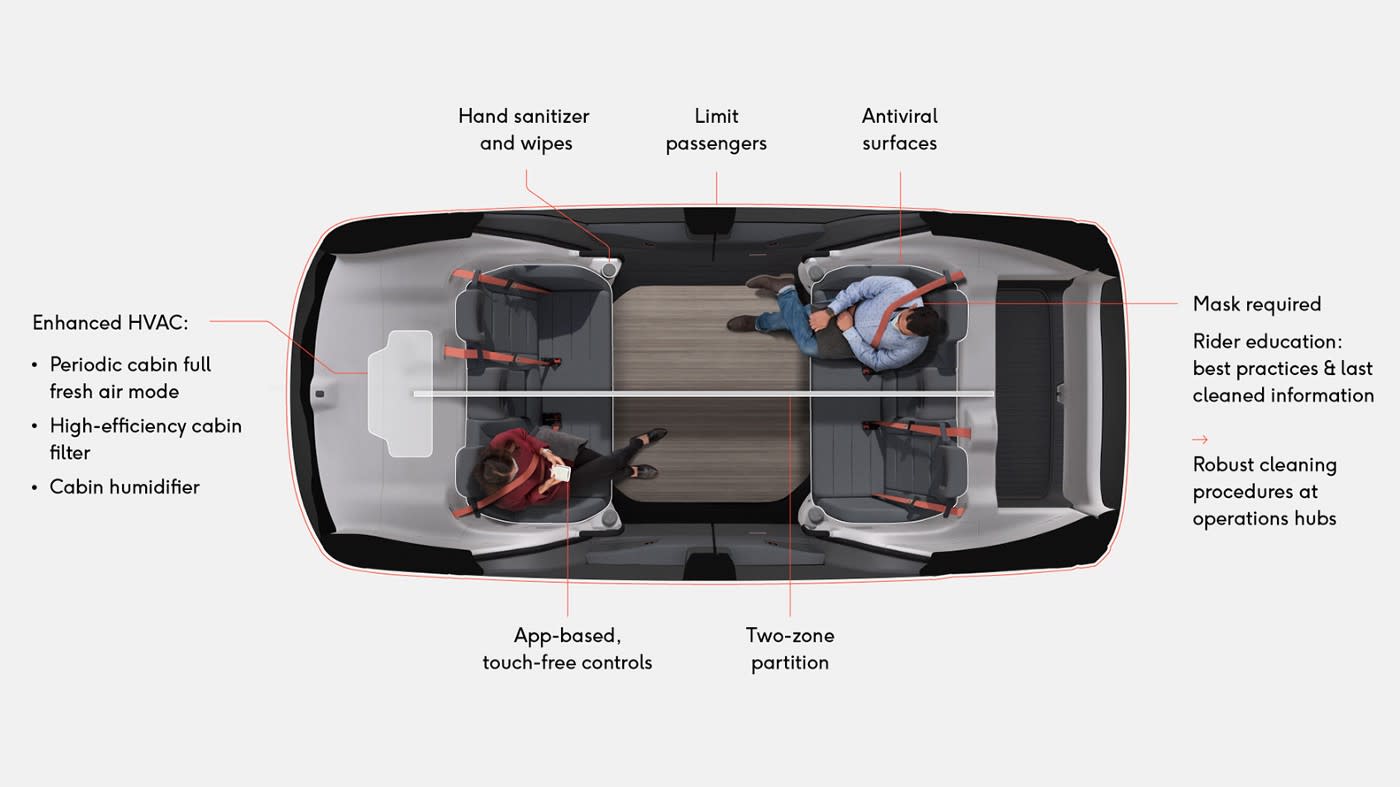Blog Post
10.21.2020
Sharing a Better Future
Share

At the very beginning of this year — before 2020 became “2020” — we revealed the Cruise Origin. The Origin is our self-driving, all-electric, shared vehicle of the future. We believe it’s not just the future of our company, but the future of transportation.
The unveiling in January was an optimistic vision for an optimistic new year.
But just as the conversation started, it was shut down, along with most of the world. COVID-19 changed everything, including the way many people think about shared vehicles. Sharing anything, it now feels, is a threat to our health.
And yet the Origin was designed specifically to improve our health — the health of our lives, our cities, and our planet. Along with our partners at General Motors and Honda, we purpose-built the Origin to completely rethink the role of the car, which for over a hundred years has been causing some of our worst and most stubborn problems. None of which are getting any less urgent during the time of COVID. In fact, some of them are getting worse.
In the U.S. alone, almost 40,000 people die and 4.4 million are injured every year in car crashes. As roads briefly cleared during the spring and summer of 2020, people sped up for lost time, and those fatality numbers increased to their highest rate in 15 years. The Origin’s sole function is to provide smooth, safe and accessible transportation, without any of the distractions, impulses, or impairments of a human driver.
The Origin is also electric — thanks to GM’s Ultium system, which testing indicates million-mile battery life is achievable — powered by 100% renewable energy. And yet gasoline-powered, single-occupant car buying also increased during the pandemic, especially in cities, where the inside of a new car became another defense against close contact with the unknown. Once COVID restrictions ease, and all these new cars converge on our roads along with all the old cars, CO² emissions will increase, as will bad traffic.
The Origin can replace many of these cars, decreasing both congestion and greenhouse gasses, but only if people feel safe enough to share a ride. And right now, the thought of getting into a vehicle with a stranger can be seen as a scary proposition.
The good news is that we had already been thinking about how to minimize the risk of contagion inside the Origin (after all, people transmitted viruses before the pandemic, too). And because it doesn’t have any manual controls, touchpoints that could spread germs were already at a minimum.
But as this virus spread across the globe, we realized we needed to do more.
From the minute that “COVID” became a household name, our teams worked with a Harvard-trained epidemiologist to rethink both the interior of the Origin, as well as the riding experience. Along with research from the World Health Organization (WHO) and U.S. Centers for Disease Control (CDC), they developed a set of solutions for the Origin that will be highly effective in reducing the spread of the virus.
Thanks to an already spacious cabin, we were able to avoid energy hungry methods like UV-C light, in favor of an elegant, clear barrier that would have felt extremely claustrophobic in a traditional car. In addition to the barrier, which will completely isolate each person, we will limit the vehicle to two passengers at a time. Our custom venting system will also safely increase air circulation.
While the pandemic persists, every Origin will also provide hand sanitizer and wipes, and require masks to be worn by all passengers. An already robust cleaning schedule will be increased to ensure our riders are completely confident that their shared ride of the future is as safe as possible. Even in a pandemic.

This year has shown all of us that partial commitments and half steps are not enough.
If we want a better, cleaner, safer, and more affordable complement to our public transportation systems, we have to be relentless in our pursuit of the vehicle of tomorrow, rather than the car of today.
To that end, we’re going all in on our commitment to getting the Origin onto the roads of our cities. Our teammates at GM are making rapid progress tooling up Factory Zero in Detroit where the Origin will be built. And because the Origin does not have driver controls like a traditional car, in the coming months GM and Cruise will be filing an exemption petition with the National Highway Traffic Safety Administration (NHTSA) seeking regulatory approval for its deployment. Accordingly, we’ll be withdrawing an earlier exemption petition that was limited to Cruise AVs derived from the Chevrolet Bolt platform.
Few could have imagined 2020 turning out the way it did. We certainly never expected that our test vehicles would be keeping people safe and connected by making over 100,000 food deliveries during a global pandemic. But that’s exactly what happened. And it opened our eyes to the even greater potential for the Origin to drive change.
So with the benefit of 2020 hindsight, we are all in for what’s next.
Renderings for illustrative purposes.
